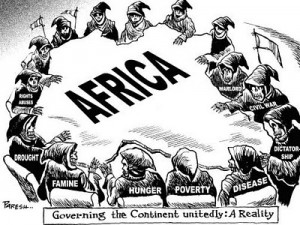In the 1600s, Great Britain began in Jamestown, Virginia with their colonization of America. The British colonization of the Americas caused disturbance through military force, cultural manipulation and the introduction of diseases. The indigenous civilizations, even with their fast and furious warrior class, was no match for the colonial-style warfare of the British. However, trade remained an important part of the relationship between the natives and the British. The Americas remained colonized by the British until the American Revolutionary War, which ended in 1783.
Similarly to the Americas, the Europeans interest in Africa began in the late 18th century. Christian missionaries helped to spread Christianity and formal colonial conquest. Great Britain abolished the slave trade, but the transition from slave trade to commerce trade was not smooth for Africans. The Europeans thrived and their influence increased. By the 1900s, only Liberia and Ethiopia were not colonized. France and Britain colonized most of Africa. But Germany, Portugal, Belgium, Spain, and Italy also participated in the colonization.
In the 19th century, the Europeans developed a great interest in Cameroon. The coastal region of feared that the more interior regions would start direct trading with the Europeans, which would weaken the coast’s power intermediary status. The chiefs of the coastal regions wanted to strike a deal with the British. But Britain’s delay to send a representative to compromise with Cameroon forced the chiefs to turn to Germany instead. Despite the diversity of the ethnic groups with distinct cultures, histories, and governments, and traditions, Germany colonized present-day Cameroon as Kamerun. Germany’s intent was to build the colony’s infrastructure and combine its rule by expanding into the interior and taking control of tribal strongholds. Germany’s plan was falling into place, until their defeat in World War 1 stopped any plans Germany may have had for the colony. Germany had to surrender its oversea colonies. France assumed control of 80% of the colony, while Britain gained the remainder. French and British rule of Cameroon lasted until after World War 2.
By definition is a system under which people are treated as property. Slaves can be bought, sold, and traded. Slaves can be held from the time of their capture, purchase or birth. Slaves are deprived of the right to leave, option to work, and/or deprived compensation. Slavery is wrong, no matter who is being enslaved. Nobody deserves to be taken as collateral. The treatment of enslaved people was horrendous. No person has the authority to dictate another person’s action. Africans were enslaved and used throughout centuries. Africans should have never relied on slavery as a form of commerce. A person has never, and will never have equal value to any tangible goods. Colonization is like enslaving an entire area. Colonization settles a group and establishes political control over it. Europeans, and others who colonized, believed that they were more powerful therefore gaining the right to take possession of any area. Forcing the native civilizations of an area to merge takes away from the culture and uniqueness of the region. Individuals lose their identity from being colonized. Using violence, guns, and other weapons as a way to intimidate civilizations to comply with rules of colonization is unfair. Everybody has a decision on how to live their life, having that decision stripped from you due to colonization is not right. Even when nations thought they were helping, they left regions in a poor state; often in poverty, famine, and war. The Scramble for Africa should have never taken place. Whether the colonizing country was peaceful or violent, no country should be granted the right to seize and restrict a region. Europeans crippled the rich native African civilizations for their own political and economic gain. No matter the reason, no intelligence, knowledge, or technology permits one country to be able to overtake another.

